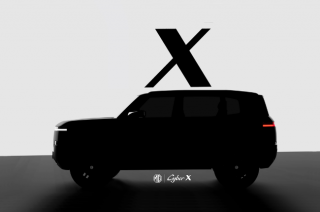
President Rodrigo Duterte has finally signed the law requiring children to be seated in car seats when being transported. February 22 marked the signing of Republic Act 11229 of the Child Safety in Motor Vehicles Act.
The law mandates that children below 150 cm (4’9”), and aged 12 and below will not be allowed to sit in the front passenger seat of a running motor vehicle. If he or she were to sit in any other seat, the child must be restrained by a child seat. Enforcement of the law will happen only one year after the implementation of the rules and regulations. The Drivers who are found not complying with the law will be fined P1,000 for the first offense, P2,000 for the second, and P5,000 for succeeding offenses. The drivers who are found violating the law on the third offense onwards will also receive a one-year driver’s license suspension.
The law seeks to maximize the safety of all infants and children in order to prevent traffic related deaths that may happen in case of an accident. While secure, the restraint system is also more complex and may require adult supervision to unrestrain the child. Hence it is deemed unlawful for a child to be secured into a child seat without the accompaniment of an adult in a motor vehicle.

The child seat should also be appropriate for the age, height, and weight of the child. Size accordingly to the height and weight of your child to ensure the safety and comfort of your children during transit. Also, ensure that the child seat is not substandard or expired. Approved seats should bear the Philippine Standard (PS) mark. The Import Clearance Certificate sticker should be present on the child seat and must not be tampered with. Tampering will result in a fine of P50,000 but not more than P100,000 for each product found with tampered or fraudulent marks. The law is in accordance with international standards made by the United Nations (UN). Hence the standards set have to be met even down to the quality and reputability of the child seat.
While the law sounds strict, there are certain exemptions, such as if the child would be put in greater danger. Medical emergencies where a child seat might do more harm than good, is one of the exceptions. Also, children with developmental conditions may also be exempted from needing a car seat. The DOTr is also studying the application of the child restraint system on public utility vehicles.
Latest News
-
Hyundai brings back free roadside help this holy week / News
Hyundai Motor Philippines will once again offer roadside help to travelers during Holy Week. This year marks the third time the program is being done, with select dealers ready to assist on...
-
Ford Philippines is offering a three-year free scheduled service package on their best-selling vehicles this month. / News
Thinking of owning a Ford? Ford Philippines now offers a free three-year Scheduled Service Plan (SSP) on select models.
-
MG teases the Cyber X—Could it be headed for PH next? / News
MG will soon launch the all-new Cyber X at the upcoming Shanghai Auto Show. The new model brings a fresh, boxy design and might be MG’s next electric or hybrid vehicle. More details will be...
Popular Articles
-
Cheapest cars under P700,000 in the Philippines
Jerome Tresvalles · Sep 02, 2024
-
First car or next car, the Ford EcoSport is a tough package to beat
Jun 18, 2021
-
Car Maintenance checklist and guide – here’s everything you need to know
Earl Lee · Jan 12, 2021
-
Most fuel efficient family cars in the Philippines
Bryan Aaron Rivera · Nov 27, 2020
-
2021 Geely Okavango — Everything you need to know
Joey Deriquito · Nov 19, 2020
-
Family cars in the Philippines with the biggest trunks
Sep 20, 2023
-
Head to head: Toyota Rush vs. Suzuki XL7
Joey Deriquito · Oct 28, 2020
-
Why oil changes are important for your car
Earl Lee · Nov 10, 2020
-
2021 Kia Stonic — What you need to know about it
Joey Deriquito · Oct 16, 2020
-
Top 7 tips for buying a used car in the Philippines
Joey Deriquito · Nov 26, 2020




